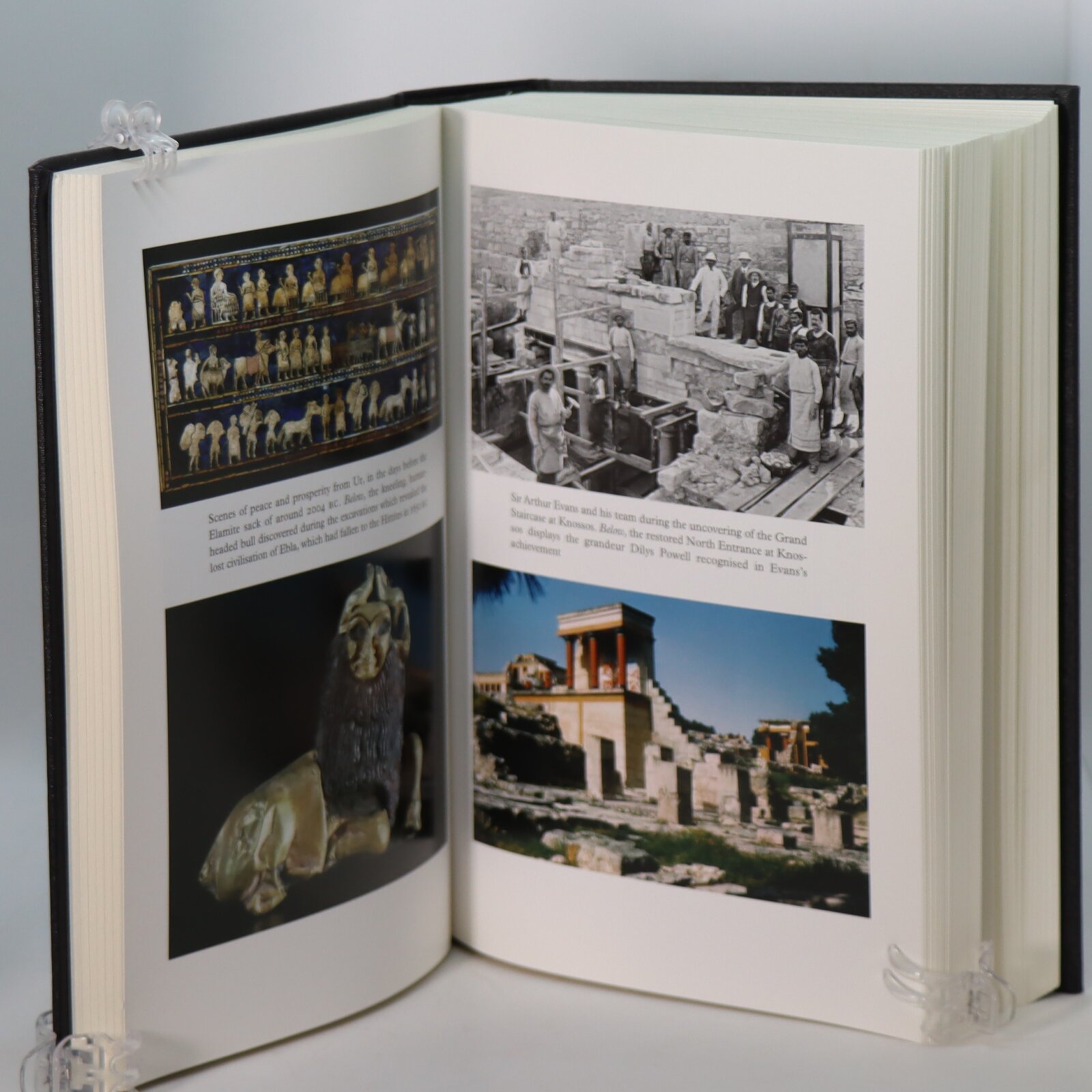Eyewitness to History.
By Robert Fox
ISBN: 9781847651891
Printed: 2008
Publisher: The Folio Society. London
Edition: Second printing
| Dimensions | 18 × 26 × 5 cm |
|---|---|
| Language |
Language: English
Size (cminches): 18 x 26 x 5
Condition: Fine (See explanation of ratings)
Your items
Item information
Description
Black cloth binding with gilt title and red figure images on the spine and front board.
F.B.A. provides an in-depth photographic presentation of this item to stimulate your feel and touch. More traditional book descriptions are immediately available.
The first and standalone in a series of four.
What was it like to be there, on the spot, at the very moment when great events took place; when great figures strode onto the world stage; when the wonderful, the terrible, the diverting and the just plain curious happened? Here, in four riveting volumes, we have the story of our world in the words of those who experienced it – from the ancient Egyptian Harkhuf as he undertakes to deliver a dancing pygmy to his pharaoh, to John Updike, over four millennia later, watching the Twin Towers collapse against the clear blue sky of a perfect New York day. Our story begins with hieroglyphics and ends with the BlackBerry.
There has always been eyewitness reporting, but it was Herodotus, ‘the father of history’, who turned it into an art form in the 5th century BC. He knew he lived in remarkable times and was determined to record them for posterity. Here the ancient world is revealed in the words of soldiers, servants, kings and inveterate travellers. Sometimes it is the great events, at others the domestic and familiar that are their subjects. Xenophon describes the epic retreat of the Ten Thousand from Persia. An impatient father upbraids his son for ‘reclining among women’ while his older brother is outcommanding ‘far-flung armies’. The wonderfully wry Suetonius observes that the Emperor Claudius, after executing his wife Messalina, was heard at dinner asking why she was not there. This volume paints a panorama of the world from the 3rd millennium BC to the Norman Conquest.
‘We saw the sea sucked away and apparently forced back by the earthquake … it receded from the shore so that quantities of sea creatures were left stranded on dry sand…’
Pliny the Younger on the eruption of Vesuvius, AD 79.
Want to know more about this item?

Share this Page with a friend












